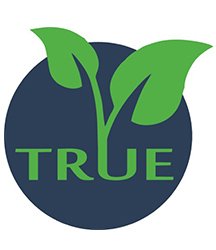Press Release 06.03.2019

PGRO is one of 24 members of the TRUE consortium (TRansition paths to sUstainable legume-based systems in Europe) which aims to identify the best routes ('transition paths') to increase sustainable legume cultivation and consumption across Europe.
The latest TRUE press release features an article on 'PLANT RESPONSES TO AN INTEGRATED CROPPING SYSTEM DESIGNED TO MAINTAIN YIELD WHILST ENHANCING SOIL PROPERTIES AND BIODIVERSITY’, which is of particular interest to UK growers.
Dr Pete Iannetta, from the James Hutton Institute’s Ecological Sciences group, is coordinator of the TRUE project and comments: “The paper recognises that the intensification of arable production since the 1950s has resulted in increases in yield - but this has been only at significant cost to the environment, raising serious concerns about long-term consequences for the sustainability of food production systems.
“While a range of policies and practices have been put in place to mitigate negative effects in terms of pollution, soil degradation and loss of biodiversity, their efficacy has not been properly quantified.
“Whole-system effects of management change are rarely studied and so trade-offs and conflicts between different components of the agricultural system are poorly understood. A long-term field platform was therefore established in which conventional arable management was compared with a low-input, integrated cropping system designed to maintain yields whilst enhancing biodiversity and minimising environmental impact.
“Over the first rotation, only winter wheat yielded less under integrated management; yield was maintained for the remaining five crops (spring and winter barley, winter oilseed rape, potato and field beans), suggesting a negligible impact on economic returns.
“Beneficial broad-leaved weeds were significantly more abundant in the integrated management system across all crops, whereas grass weeds showed no overall response to treatment.
“Soil carbon, pH and soil concentrations of the main plant growth-limiting macronutrients were enhanced under the integrated management system which was therefore successful in meeting the goals to enhance biodiversity and reduce environmental impact without jeopardising crop yields,” adds Dr Iannetta.
NOTES:
1. For further information on the TRUE Project and/or the full article, contact Dr Pietro Iannetta +44 (0)1382 568873 (office direct) pete.iannetta@hutton.ac.uk
2. The James Hutton Institute works with partners across Europe and the world and is at the forefront of research into the exciting possibilities of pulses to feed the world in a sustainable way. The research ranges from their use in health foods for humans and animals to novel uses.
3. For full information about the structure of TRUE please visit www.true-project.eu. Transition paths to sUstainable legume-based systems in Europe (TRUE), has received funding from the European Union’s Horizon 2020 research and innovation programme under grant agreement No. 727973. Full details can be found at the TRUE web site www.true-project.eu. The TRUE email address is info@true-project.eu. Ecosystem services are grouped into four broad categories: provisioning, such as the production of food and water / regulating, such as the control of climate and disease / supporting, such as nutrient. ‘Legumes’ are fresh peas and fresh beans (also soybean and peanuts, not grown commercially in the UK) along with pulses which are dry beans and dry peas (also chickpeas and lentils, not grown commercially in the UK).



